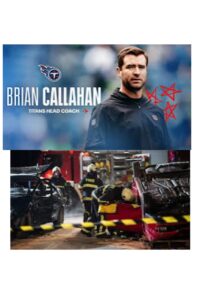
As the Paris Olympics draw nearer, USA Track and Field (USATF) finds itself in turmoil, grappling with a series of high-profile failures that underscore a troubling pattern of mismanagement and missed opportunities. The latest debacle is not just a minor setback but a stark reminder of the organization’s chronic issues, which former Olympic legend Carl Lewis had long warned about and offered solutions to—only to be ignored.
The recent implosion in Paris, characterized by a string of disappointing performances and strategic blunders, has placed USATF under a harsh spotlight. For years, the organization has been criticized for its lack of coherent planning and effective management. From athlete mishandling to poor strategic decisions, the problems seem systemic rather than isolated incidents.
Carl Lewis, one of the most decorated track and field athletes in history, has been vocal about these issues for years. Known for his unparalleled achievements on the track, Lewis’s expertise and insights into the sport are second to none. In a series of public statements and proposals over the years, Lewis outlined a comprehensive plan to address the deficiencies plaguing USATF. His recommendations included revamping coaching structures, enhancing athlete support systems, and implementing a more rigorous selection process. Despite his track record and the credibility of his suggestions, USATF’s leadership chose to disregard his input.
The consequences of this dismissal are glaringly evident in Paris. The U.S. team’s performance has been marred by a series of strategic errors, from suboptimal training regimens to questionable team selections. Athletes who should have been contenders are faltering, and the overall team spirit appears to be in disarray. This situation is not just a minor blip but indicative of a broader crisis within USATF.
Carl Lewis’s proposals were not mere critiques but actionable plans grounded in years of experience and success. His vision for a more structured and athlete-centered approach could have mitigated many of the issues now on full display. The refusal to engage with his recommendations reflects a broader pattern of insularity and resistance to change within USATF.
The Paris Olympics serve as a dramatic example of what happens when an organization fails to evolve and adapt. The fumbles and blunders of USATF are not just a reflection of poor decision-making but also a cautionary tale of missed opportunities. As the Olympic spotlight shifts to Paris, it is clear that the failure to heed Carl Lewis’s advice has had profound implications.
In the wake of these challenges, USATF faces a critical juncture. It must confront its past mistakes, acknowledge the wisdom of its most accomplished figures, and commit to meaningful reforms. Only then can the U.S. hope to restore its track and field program to its former glory and avoid further embarrassments on the global stage. The Paris debacle is a wake-up call—one that should not be ignored any longer.







